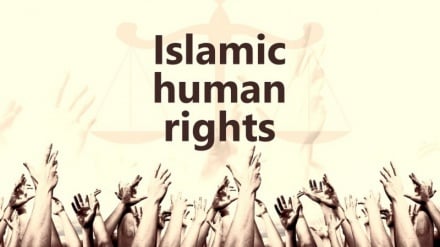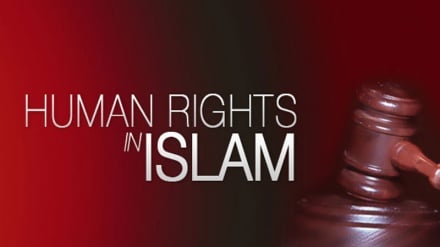Islamic human rights (3)
Welcome to the 3rd weekly episode of the series Islamic Human Rights. Today, we study the human rights developments in Western communities in the Middle Ages and Age of Renaissance.
As a reminder, last week we studied the historical trend of development of human rights in ancient times.
The medieval times lasted for a thousand years from the 5th Century to 15th Century AD. The Middle Ages started with the fall of West Roman Empire in the year 476 AD, and continued till the conquest of Constantinople by the Ottoman Empire in the year 1451 AD. The characteristic features of this period of time include the promotion of Christianity and power of priests; establishment of the feudal system, and the resulting restriction of personal rights and freedoms, especially the freedom of speech. Meanwhile, the issuance of the Great Charter by King John of England in the year 1215 AD can be referred to as a historical milestone in that era.
Upon the emergence and spread of Christianity, and given the human teachings of monotheistic religions which put emphasis on ethics, fraternity, and elevated human dignity; large numbers of individuals converted to Christianity in 3rd and 4th Centuries AD, and priests gained the trust and respect of the community, gradually wielding political and religious power. Bishops, upon taking advantage of their influence on masses of people; rejection of slavery; and its replacement by the feudal system, managed to accumulate huge wealth, thereby spawning an emerging class gap in the West. Moreover, upon presenting the idea that rulers are God’s chosen ones; priests wielded a significant influence on the political structure, while enjoying popular support.
Upon the empowerment of the Church and the Pope in 13th Century AD, the natural rights of mankind which were initially presented by the Greeks, was replaced with divine rights. In fact, the major difference between the rulers of the Church and Greek and Roman thinkers was that the leading Church figures considered power and governance to emanate from God’s resolve, while believing that interference in the people’s religious affairs is their unquestionable right. Powerful Church figures also considered themselves superior to the Emperor, and meddled in all domains. Hence, people were deprived of the main manifestations of freedom such as freedom of thought and speech. Greeks considered people as the main source of power.
In England, the class system, which separates the ruling class from common people, maintains a long history. Despite the presence of absolute monarchy in the past; the aristocrats, including the courtiers, priests, and noble figures also maintained influence and credibility; such that a kind of covert rivalry had taken shape against the king’s absolute rule. Hence, those kingly orders which caused restrictions for aristocrats led to the resistance of noblemen.
This is certainly the case in the early 13th Century AD, throughout which the then king was forced to relatively restrict the authority of the ruler and to grant concessions to influential figures and aristocrats in order to restore calm. This order was issued by King John of England in the year 1215 AD. In this order, the issuance of which was a landmark event, a number of personal rights and freedoms were also granted to ordinary people, in addition to the aristocrats.
Upon the emergence of suppressive regimes in the waning years of medieval times, a campaign for attainment of human rights was initiated, which led to occurrence of major political revolutions in late 17th and 18th
Centuries AD. In that period of time, aspects of human rights which were violated till then were demanded in the framework of human rights declarations, and were later included in countries’ constitutions.
Upon the emergence of the religious reform movement and Age of Renaissance, gradually it was said that mankind, as the superior creature in the world, can recognize divine resolve with his wisdom and will be able to set appropriate rules and regulations for governance and organization of human communities. Hence, the concept of innate rights was promoted. This ideology was further promoted in Protestant countries.
The Age of Renaissance is a historical period which led to major developments in Europe, thanks to the emergence of a scientific movement in that era.
The Renaissance Movement, which started in Italy in 15th Century AD, gradually covered all political thoughts in Europe, while Humanism turned into the pillar and foundation of the social system and political structure of that region.
Centuries after the issuance of the Great Charter in the year 1215 AD, England bore witness to two rights declarations in the 17th Century AD, given the ideological growth and continuous freedom-seeking struggles of the then community against the suppressive kings; which, in turn, inspired revolutions in France and the US, and a number of other Western countries.
The mistreatment of people by Charles the First, and his degrading treatment of the House of Commons spawned political crisis in this country. The English lawmakers reacted against this repressive approach, provoking the king to instruct the dissolution of the House of Commons. Nonetheless, mounting political and religious dissent, and unification of the supporters of constitutional monarchy with the middle class, pushed the king to partly restrict his authority.
Upon the execution of Charles the First, his son, Charles the Second, and later on his brother, James the Second, ascended the throne in England. James the Second, like Charles the First, claimed that the king’s authority maintains a divine aspect and the king is God’s chosen one. James the Second went on the neglect the rights of people and ruled with an iron fist. This, in turn, led to the opposition of people and lawmakers. Meanwhile, the king made use of the military and took advantage of the financial assistances of the then French government, suppressing and executing his opponents. However, upon mounting political dissent and religious disputes, ultimately James the Second fled to France in the year 1688 AD.
This historical event led to a major development which put an end to absolute monarchy in England, and led to establishment of a constitutional monarchy, upon the adjustment of king’s authority and further empowerment of the House of Commons. To this end, the House of Commons drafted the declaration of rights; the final text of which was approved on February 13, 1689, following months of discussion and research. In this declaration, a number of fundamental civil and political rights were discussed, which were later taken into consideration throughout the global documents of the 20th Century AD.
Throughout the waning years of the Renaissance Movement in mid-16th Century AD, the religious reformation movement, as a factor leading to development of theology, complimented the scientific and cultural movement of the Age of Renaissance. Teachings of the thinkers such as Martin Luther and Jean Calvin highly contributed to the liberation of people from the domination of Catholic Church, and termination of the monopoly of priests in interpretation of religion. These thinkers are considered as initiators of individualism.
The political developments and the freedom-seeking ideals of people of England in 17th Century AD, and the resulting personal rights and freedoms inspired the freedom-seeking struggles of American people.
MR/ME


